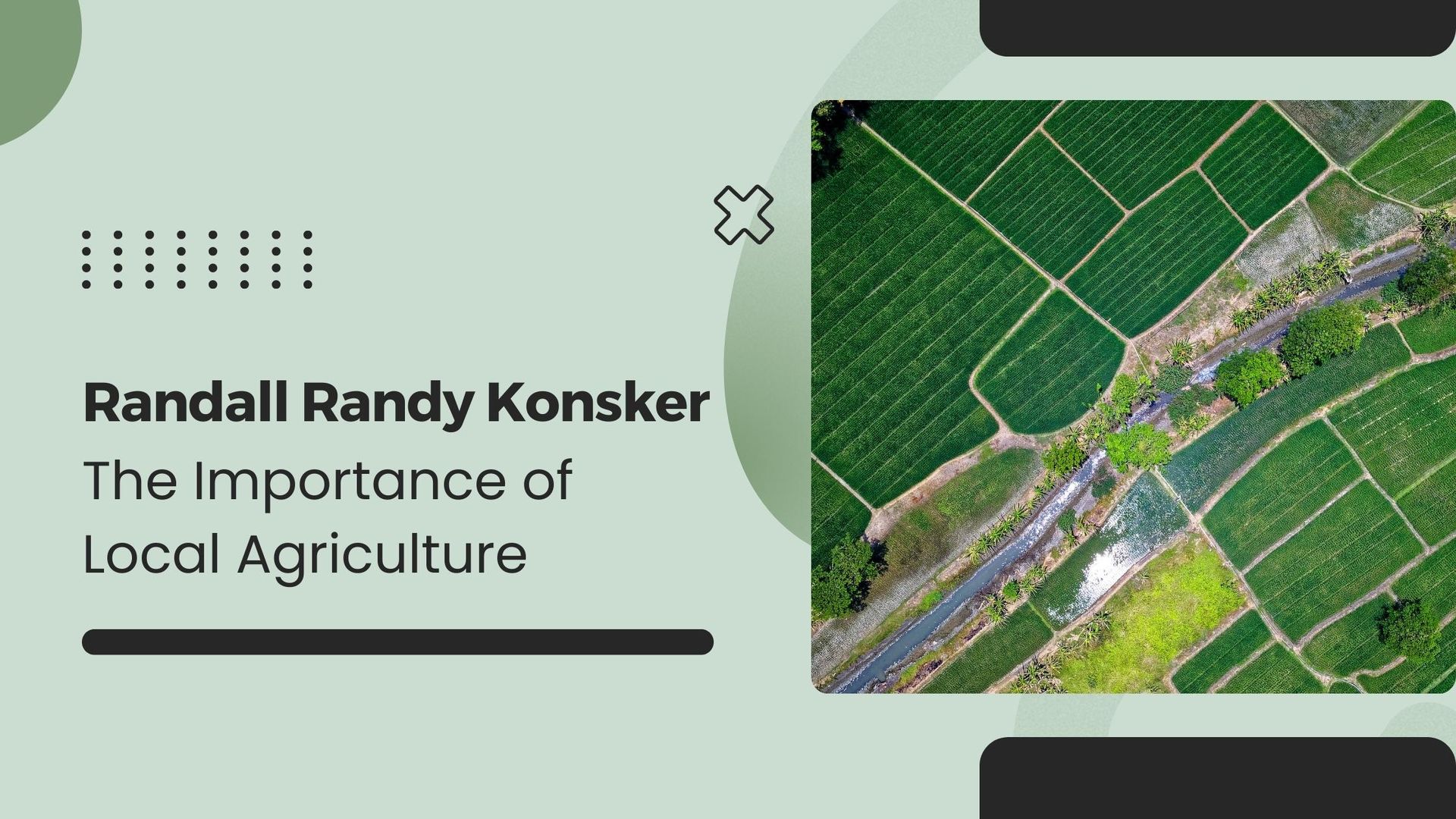
Local agriculture has long been the backbone of communities, providing fresh, nutritious food, supporting local economies, and fostering sustainable farming practices. Randall Randy Konsker, a seasoned agricultural consultant, passionately advocates for the importance of local agriculture. His insights shed light on the numerous benefits that local farming brings to individuals, communities, and the environment. Here, we explore Konsker's perspectives on why supporting local agriculture is crucial for a sustainable and prosperous future.
1. Environmental Sustainability
Local agriculture plays a critical role in promoting environmental sustainability. By reducing the distance food travels from farm to table, it significantly cuts down on greenhouse gas emissions associated with transportation. Local farms often adopt environmentally friendly practices such as crop rotation, organic farming, and integrated pest management, which reduce the reliance on chemical fertilizers and pesticides. These practices help preserve soil health, protect water resources, and enhance biodiversity. Furthermore, local farming typically involves smaller-scale operations that are more adaptable to sustainable methods, compared to large industrial farms that prioritize yield over ecological balance.
2. Economic Benefits for Local Communities
Investing in local agriculture has profound economic benefits for local communities. Money spent on locally produced food stays within the community, creating a multiplier effect that stimulates local economies. Farmers markets, farm-to-table restaurants, and community-supported agriculture (CSA) programs generate income and create jobs, fostering economic resilience. Local agriculture also supports ancillary businesses such as equipment suppliers, seed vendors, and transportation services. By prioritizing local produce, communities can reduce their dependence on external markets and enhance their economic stability.
3. Enhanced Food Security
Local agriculture is a cornerstone of food security. By having a robust local food system, communities are less vulnerable to global supply chain disruptions caused by geopolitical tensions, natural disasters, or pandemics. Local farms can quickly adapt to changing conditions and continue to provide fresh, nutritious food even in times of crisis. Additionally, local agriculture can help diversify the types of crops grown, reducing the risk associated with monoculture practices prevalent in industrial farming. This diversity enhances resilience against pests, diseases, and climate change, ensuring a stable and continuous food supply.
4. Building Stronger Communities
Local agriculture fosters a stronger sense of community. Farmers markets and CSA programs create direct connections between producers and consumers, promoting trust and mutual support. These interactions build a sense of belonging and shared responsibility towards local food systems. Community gardens and urban farms provide opportunities for residents to engage in food production, learn about sustainable practices, and foster a connection with the land. This communal engagement encourages healthier eating habits, environmental stewardship, and social cohesion.
Conclusion
In conclusion, the importance of local agriculture extends far beyond the mere production of food. It is a vital component of sustainable environmental practices, economic vitality, food security, and community building. By supporting local farmers and embracing locally grown produce, individuals and communities can contribute to a more resilient and sustainable future. The benefits of local agriculture are manifold, and its promotion is essential for creating a thriving, self-sufficient society.